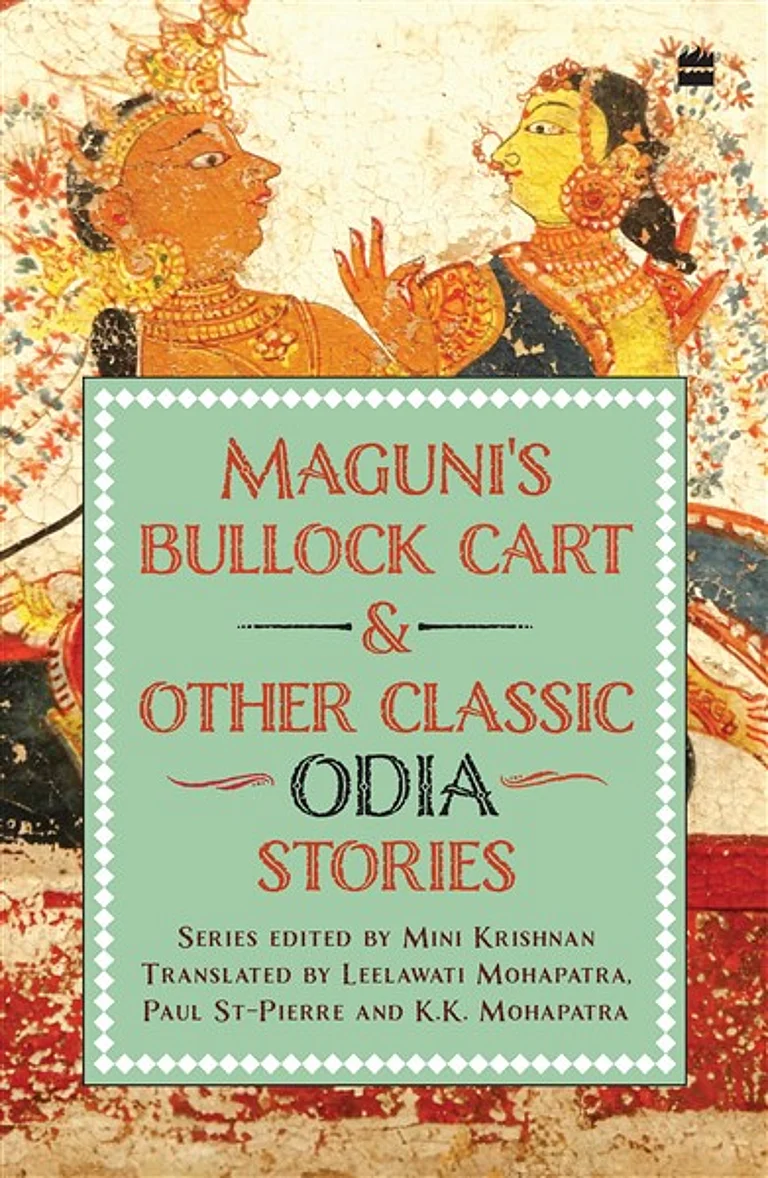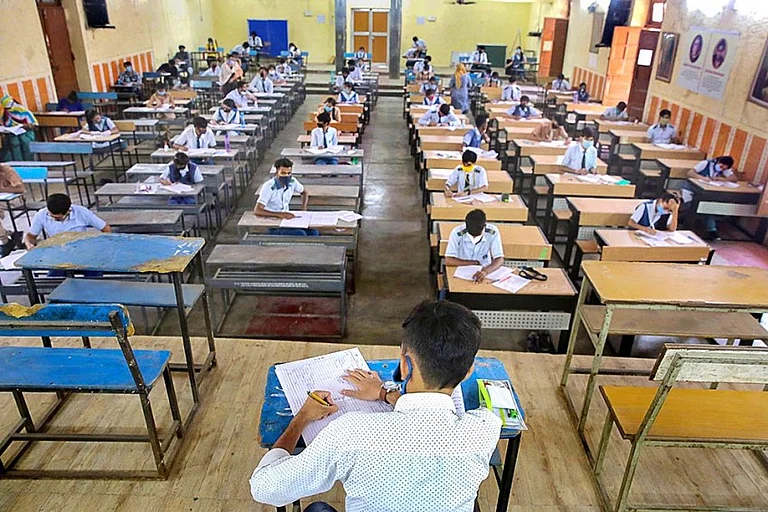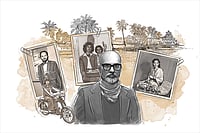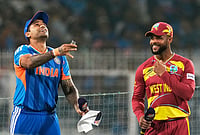A new publisher looking for good scripts, I landed in Wajahat Habibullah’s office one day. Chairman of the National Commission for Minorities, he had worked with both Prime Ministers Indira and Rajiv Gandhi. The trait of mutual trust had actually run across generations.
On the wall behind his bureaucratic leather chair was a black-and-white photograph: Prime Minister Jawaharlal Nehru and an equally handsome man riding their horses in a bucolic locale. ‘My father,’ Wajahat quietly said, noticing my curiosity.
General Enaith Habibullah of the British Indian Army opted for India when Pakistan was carved out in 1947, acceding to Jinnah’s demand for a separate Muslim nation. A rule guiding the Defence Ministry left such Muslim officers no choice but to quit the Indian Army. The general sought Nehru’s intervention. Backed by the Prime Minister, Enaith became the first Commandant of the prestigious National Defence Academy. The framed photo in Wajahat’s office commemorates Nehru’s visit to the Academy in Pune.
A rather reserved but efficient officer of the Indian Administrative Service, Wajahat’s toughest challenge was negotiating with Islamic terrorists holed up in Kashmir’s hallowed Hazaratbal shrine in 1993. When his efforts had just begun to show some signs of a thaw in the standoff between the authorities and dug-in ultras, he met with a terrible car accident, taking him off the scene with a skull fracture. Another time, separatist Kashmiri militants fired at him near the Jama Masjid in the older part of Srinagar, apparently in an attempt to kidnap him.
“You were close to Rajiv Gandhi, why don’t you write about the man you knew?” I pressed the point. “That would be a good book to read.”
Though the Rajiv Gandhi book did not happen, I somehow stayed in touch with Wajahat. In my office one afternoon in 2017, I read his email—addressed to some media personalities to wish good luck to his niece, who was longlisted for the Booker Prize. Curious, my eyes waited on the name—Kamila Shamsie, the Pakistani-British writer. Her Home Fire was in contention for the high-profile award.
The story that Wajahat’s email did not tell was of one more family divided by Cyril Radcliffe’s hasty line.
The Equator Line (TEL) magazine I was then editing had a theme for every issue, and everything between the covers revolved around it. Putting to test the liberal ideals that fuelled TEL, I decided to run a cover on Pakistan around that time.
Guest-edited by a young writer from Karachi, everything that went into the book was from Pakistan or its diaspora. Activists, aspiring writers, young professionals, and experts wrote about the state of their country—not the usual suspects of peaceniks preferred by India’s mainstream media.
One expat from Toronto wrote about the horrible service on a PIA flight home and Karachi’s posh gated neighbourhoods anxious to keep rich kids safe from sporadic street gunfights. Also, about the euphoria of loud music at nightlong parties.
There were poignant accounts of the minority Shia community’s persecution, sexual exploitation at the workplace and the vanishing Gandhi landmarks in Karachi. And about schoolgirls playing football, and the quaint charm of the evening streets in Lahore as well.
I had asked Shamsie to write for this number. She, however, politely declined, pointing out the work on hand.
Buoyed by the success of ‘Pakistan: After the Stereotypes’, we planned another issue to deny the majoritarian proponents the space they claim as theirs. The number, ‘Liminality of Faith’, was about the shrines in India, Pakistan and Bangladesh where people from different faiths pray together.
As part of the package, we carried the luminous story of Dewa Sharif, a century-old Sufi dargah near Lucknow that exalts the age-old cultural mélange. It celebrates Holi along with Muslim festivals. Though run by Muslims, the Hindu footfall in the shrine any day is much higher. And they come from faraway places—to pray and for thanksgiving too.
While going through the absorbing story of Dewa Sharif filed by a Lucknow journalist, I learnt that Wajahat heads the dargah’s trust. He was quoted about the shrine’s underlying inclusive philosophy. Weeks later, I saw shocking news reports that Wajahat was on the hit list of a homegrown Islamic terror outfit that considered the dargah un-Islamic.
The Covid-19 pandemic turned our world upside down. The Equator Line could not survive the long lockdown. By the time life returned from the netherworld, it was not possible to put things back in order. With the success of my two books published in 2024, I became a full-time writer.
When I left Delhi in the first week of May, on my way to Boston to research a new book, the air was fraught with fear of hostilities breaking out between India and Pakistan in the wake of the brutal killings of 26 tourists in the picture-postcard Pahalgam in the Indian part of Kashmir. The question was not if India would retaliate but about timing and scale.
For the road, I took two books—Shamsie’s Kartography was one of them. It’s all about the sepia-toned charm and enigma of Karachi life seen through the upper-crust prism. Though it is Karachi in the last decades of the 20th century, the book unerringly captures everything that troubles Pakistan now: ethnic conflicts, incompatibility between new money and the entrenched feudal overlords. A spell of widespread violence triggered by a road accident— the bus driver happens to be a Pathan while the boy run over a Muhajir—sets the narrative rolling.
Going by the author’s infallible critique of the nation that the British colonialists gifted Jinnah by partitioning India, Pakistan is not a monolith however much the religious right in India believe it to be. Of its three major components, the military is Super Boss. Other institutions like Parliament, the judiciary and the press are amenable under pressure. The mullahs who have a total grip over the extensive terror networks are fairly autonomous.
But there is also a robustly liberal civil society, a product of Baron Macaulay’s English education system in India. This upwardly mobile class sees a threat to its values and liberal aspirations more from Rawalpindi’s generals, widely known as GHQ, and the retrograde ‘iron mullah’ (remember Rushdie’s Shalimar the Clown?) than from India. However, for India’s burgeoning right, Pakistan as a nation is a metaphor for evil.
At the gate for transfer passengers inside Charles de Gaulle, a young woman in a staff uniform was offering little Ziploc bags for water bottles. Recognising each other’s distinctly subcontinental features, we smiled. ‘Are you from India?’ she asked. During the short conversation that followed in Hindi-Urdu— once known as Hindustani—I told her about the Pakistani writers who had written for The Equator Line. “Aapse milkar khushi hui,” the girl from somewhere near Rawalpindi said, her face beaming. Really nice meeting her too.
Before the phones were switched off on the next leg of the flight across the Atlantic, I posted on X a picture of me reading Shamsie’s book with the caption: a good read on a long flight.
At supper at a friend’s place in Medford the next evening, I learnt of fighter jets, missiles, drones crisscrossing the border clumsily drawn by Sir Cyril in 1947.
MORE FROM THIS ISSUE
(Bhaskar Roy is an author, most recently, of Border Crossers. He was the founding editor of The Equator Line)






































